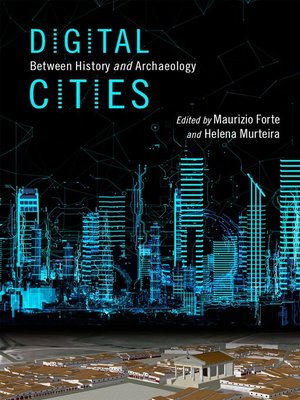
Sign up to save your library
With an OverDrive account, you can save your favorite libraries for at-a-glance information about availability. Find out more about OverDrive accounts.
Find this title in Libby, the library reading app by OverDrive.



Search for a digital library with this title
Title found at these libraries:
| Loading... |
The onset of digital archaeology and its subsequent remarkable development has had a crucial impact on the study of cultural heritage. Presently, researchers are able to manipulate and reinvent digital and historical data; the study of the city stands out in this context. Cities are microcosms, often reflecting the changing structure of societies over time. A vast array of digital tools (laser scanning, augmented reality, remote sensing, and beyond) can process, test, and display archaeological data, architectural remains, and built heritage on a scale previously unattainable. The digitization of historical research is manipulating and reinventing the ways in which we examine historical evidence. This intersection between history and computer science allows for an expansion and enhancement of historical, archaeological, and anthropological research. The resulting configurations lead to the creation of new data and new objects of study within these fields, which makes it crucial for those in these fields to understand the impact of generating digital information in this context. Digital Cities explores the study of the city in the digital realm by reexamining the data processing and knowledge sharing between historians, architects, geographers, anthropologist, and computer scientists. Digital Cities considers the city from pre-historic settlements to the present in different geographical contexts. Each section of the book offers a new level of engagement with various digital tools, spanning topics such as the challenges digital instruments pose to the study of pre-urban and urban contexts, the didactic scope of virtual heritage, and the consolidation of the relationship between digital language and historical narrative. The resulting research traverses the idea of Digital Cities through a historical, social, and multimodal context, and it fills the gap in scholarship between the study of the city and the concept and significance of the Digital City.






